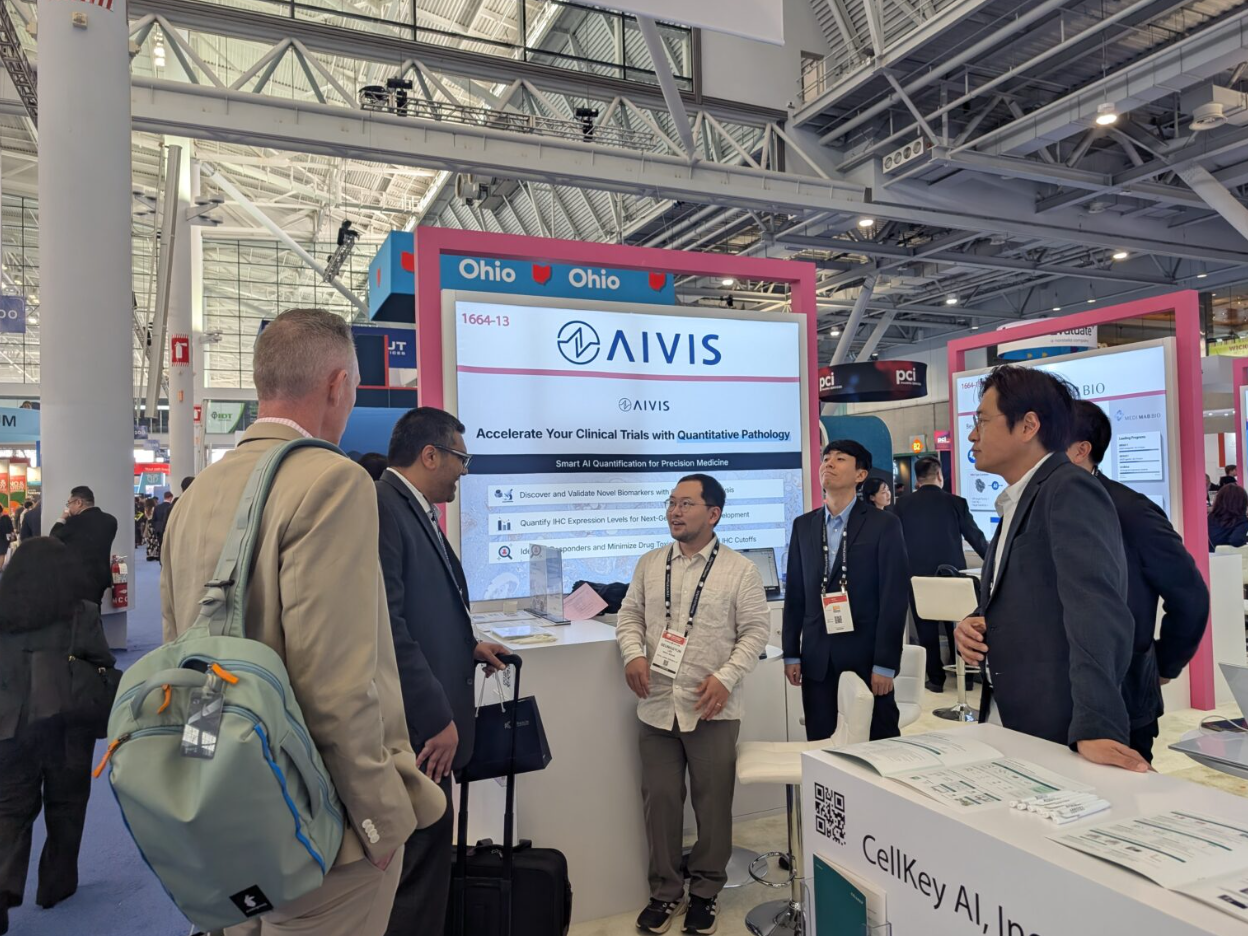Korean Biotech Startups Forge Global Partnerships at BIO USA 2025
Platum
June 20, 2025

Ten innovative startups from Seoul’s biotech ecosystem took center stage at BIO USA 2025 in Boston (June 16–19), engaging in high-level business meetings with global pharmaceutical firms, U.S. venture capitalists, and top-tier research institutions. Seoul Bio Hub, in partnership with Invest Seoul, led the delegation featuring emerging leaders in pharma, digital health, and AI. Companies including AIVIS, Galux, VSPharmTech, CellabMed, Astrogen, and others were selected earlier this year to represent Korea’s biotech potential on the global stage. To prepare, each startup underwent tailored consulting programs to enhance investor readiness, refine IR materials, and pre-schedule meetings with potential partners. During BIO USA, the companies conducted over 150 partnering meetings, with follow-up discussions expected to continue post-event. To increase visibility, Seoul Bio Hub and Invest Seoul co-hosted the Seoul BIO Forum on June 16, attracting over 130 stakeholders from the global pharma and investment community—including AstraZeneca, Pfizer, OrbiMed, NVIDIA, Mayo Clinic, and UCLA—to meet with the Korean startups and explore partnership opportunities. Global Interest and Key Announcements • AIVIS, a leader in AI-powered digital pathology, showcased its QantiⓇ IHC solution, which enables HER2 ultralow quantification and is already in use at over 20 Korean hospitals. The company secured opportunities to initiate validation studies with U.S. hospitals and research institutions. • Galux, an AI-driven de novo antibody design platform, presented successful antibody generation for PD-L1, HER2, and other targets. The company drew strong interest from global pharmaceutical firms for joint research and licensing agreements. • VSPharmTech, focused on radiosensitizer development, advanced tech transfer discussions with companies in the U.S., Europe, China, and the Middle East for its Phase 2 candidate VS-101, and is actively exploring investment to accelerate clinical development. • CellabMed, developing CAR-T therapies for solid tumors, highlighted its CLM-103, which recently received IND approval for Phase 2. The company received multiple inquiries for licensing and CDMO partnerships. • Astrogen drew attention with its autism treatment AST-001, now pending Korean regulatory approval following Phase 3 trials, and AST-035, a glioblastoma therapy. Follow-up investment discussions are ongoing with U.S. venture capital firms. • Proteina, a protein-protein interaction (PPI) data analytics company, unveiled its SPID platform and introduced its TNFα-targeted antibody program. Having opened a Boston office, the company is now exploring joint research with leading U.S. biopharma firms. • ExoLance presented its exosome-based drug delivery platform and is in talks with global pharma partners to co-develop non-LNP mRNA vaccines and GLP-1 therapeutics. Licensing opportunities in the cosmetics sector are also under discussion. • Cureverse showcased a pipeline that includes CV-01 (Alzheimer’s, licensed to Angelini Pharma), CV-02 (MS, FDA-cleared for Phase 1), and CV-03 (oncology). Several co-development and licensing conversations are underway. • CellKey AI, a multi-omics analysis company, introduced its SpAC9 Data Foundry, used for glycoproteomics-based biomarker discovery. The company is exploring a SaaS licensing deal with a U.S. pharma and collaborative studies with Massachusetts General Hospital (MGH). In parallel, Seoul Bio Hub promoted its Global Open Innovation initiative, launched with Celltrion, which aims to co-identify and support promising startups in both Korea and the U.S. for cross-border collaboration and investment. BIO USA 2025 served as a strategic springboard for Korean biotech startups seeking international expansion. With dozens of potential partnerships initiated, Seoul Bio Hub affirmed its commitment to supporting these companies post-conference as they work to convert opportunities into lasting business outcomes.